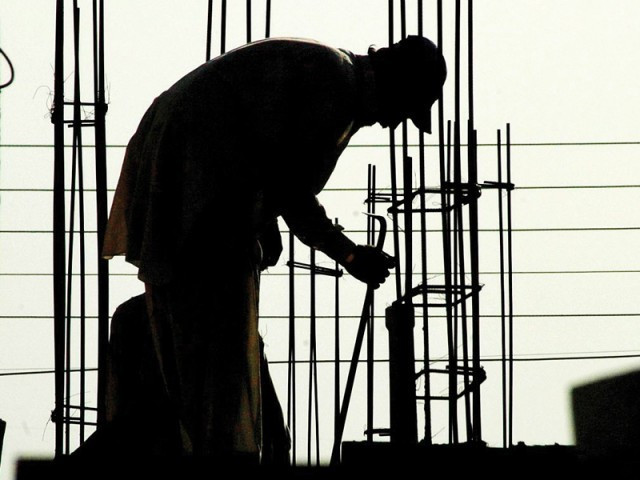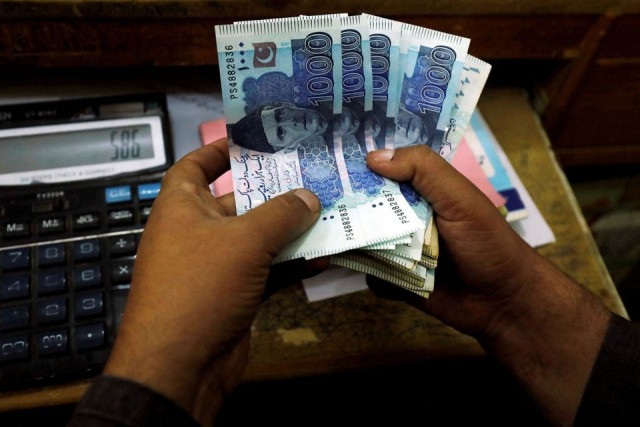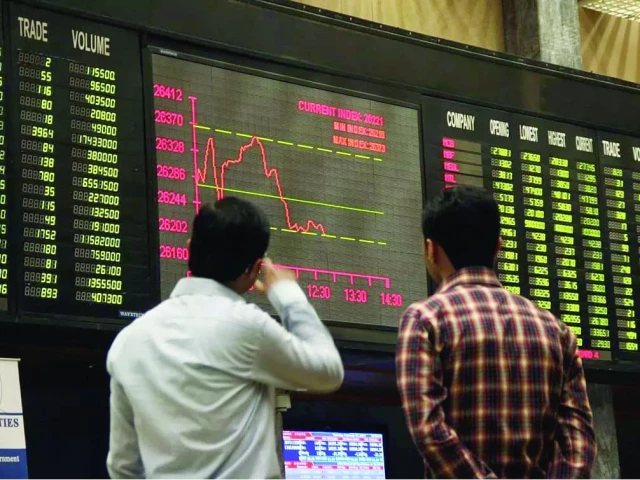Business
Industrial zone on PSM land planned | The Express Tribune

ISLAMABAD:
The government on Wednesday decided to establish a new industrial estate on the land of the closed Pakistan Steel Mills (PSM) and also sanctioned the diversion of Rs2.9 billion in publicity funds for the upgradation of an English news channel operated by the Pakistan Television Corporation (PTV).
The decisions were taken by the Economic Coordination Committee (ECC) of the Cabinet, which met under the chairmanship of Finance Minister Muhammad Aurangzeb. The ECC approved the establishment of the industrial estate on 3,200 acres of PSM land by changing its designated use from steel mills to industrial. The decision followed discussions with the Sindh government and deliberations in the apex committee of the Special Investment Facilitation Council (SIFC).
The ECC also rescinded its two-and-a-half-year-old decision banning the lease of PSM land to any industry, organisation, group, or individual, a move aimed at facilitating the development of the new industrial estate over the 3,200 acres. The government is also attempting to revive the closed PSM with assistance from Russia. Last month, Special Assistant to the Prime Minister (SAPM) on Industries Haroon Akhtar Khan visited Russia and held talks on the mill’s revival. According to Khan, the Russians expressed willingness to finance and conduct a feasibility study for the project.
The matter of pricing PSM land remains open, although the SIFC has already instructed that instead of selling land for industrial purposes, the concerned entities should issue licenses, a step that would substantially reduce costs for setting up new factories.
The ECC directed the Board of Investment (BOI) to develop clear criteria and terms and conditions for the allotment of land to industrial units and private developers for the establishment of the industrial estate within one month.
The government maintains that the industrial estate should not be developed using taxpayers’ money and that private developers should be engaged instead.
PSM owns about 19,013 acres of land in Karachi. Of this, 6,409 acres are available for setting up an industrial estate. However, the Sindh government has stated that establishing such an estate would require a change in land use from steel mills to industrial.
The Ministry of Industries informed the ECC that Pakistan’s regional competitors are offering a wide range of incentives to attract investment in the manufacturing sector, extending far beyond the provision of land at subsidised rates. Furthermore, comparatively higher costs of energy, power, and taxes constitute major impediments that could be offset by granting land through licenses.
The ministry also noted that the PSM has accrued liabilities of around Rs400 billion and that land remains the primary source to offset these. Since the current proposal does not involve transferring ownership of the land, the option to leverage it to offset PSM liabilities at an appropriate stage would remain intact, it added.
The ECC also approved a supplementary grant of Rs2.9 billion for upgrading PTV World, the English news channel owned by the state-run PTV Corporation. The decision was influenced by the context of the India-Pakistan war.
Both military and civilian authorities believe the country requires more English-language channels to convey the state’s narrative to foreign audiences and the diplomatic corps in Pakistan. The Rs2.9 billion will be used to modernise PTV World’s infrastructure, enhancing its capacity for high-quality national and international broadcasting, the ECC was informed.
The Ministry of Information told the ECC that, through its special wartime transmissions, PTV World had made a vital contribution to safeguarding national and ideological interests, boosting public morale, and projecting the courage and professionalism of Pakistan’s Armed Forces on the international stage.
Based on this experience, the PTV Corporation emphasised the urgent need to upgrade and modernise PTV World’s infrastructure to meet the demands of emerging broadcast technologies. However, due to severe financial constraints and limited internal resources, the corporation cannot undertake this initiative independently. The government has decided to divert Rs2.9 billion from the Rs5 billion allocated in the budget for government publicity and advertisement expenditure. The finance ministry also agreed to reallocate the funds from the publicity budget.
The finance ministry stated that the ECC had sanctioned Rs2.9 billion for the upgradation of its English news channel to improve broadcast quality and expand outreach to global audiences. The ECC further urged the ministry to develop a comprehensive business plan to make the channel self-sufficient and financially sustainable, thereby reducing dependence on federal grants in the future. The ECC also approved the removal of the requirement for Health Quarantine Certificates on the import and export of leather, a step aimed at facilitating the leather industry and enhancing its competitiveness in international markets, according to a Ministry of Finance announcement after the meeting.
The committee additionally approved a supplementary grant for the Ministry of Climate Change and Environmental Coordination for the current financial year 2025-26, enabling the ministry to strengthen initiatives for environmental protection and climate resilience through participation in the upcoming 30th Session of the Conference of Parties (COP-30) to be held in Brazil later this year.
Business
BP cautions over ‘weak’ oil trading and reveals up to £3.7bn in write-downs

BP has warned it expects to book up to five billion dollars (£3.7 billion) in write-downs across its gas and low-carbon energy division as it also said oil trading had been weak in its final quarter.
The oil giant joined FTSE 100 rival Shell, after it also last week cautioned over a weaker performance from trading, which comes amid a drop in the cost of crude.
BP said Brent crude prices averaged 63.73 dollars per barrel in the fourth quarter of last year compared with 69.13 dollars a barrel in the previous three months.
Oil prices have slumped in recent weeks, partly driven lower due to US President Donald Trump’s move to oust and detain Venezuela’s leader and lay claim to crude in the region, leading to fears of a supply glut.
In its update ahead of full-year results, BP also said it expects to book a four billion dollar (£3 billion) to five billion dollar (£3.7 billion) impairment in its so-called transition businesses, largely relating to its gas and low-carbon energy division.
But it said further progress had been made in slashing debts, with its net debt falling to between 22 billion and 23 billion dollars (£16.4 billion to £17.1 billion) at the end of 2025, down from 26.1 billion dollars (£19.4 billion) at the end of September.
It comes after the firm’s surprise move last month to appoint Woodside Energy boss Meg O’Neill as its new chief executive as Murray Auchincloss stepped down after less than two years in the role.
Ms O’Neill will start in the role on April 1, with Carol Howle, current executive vice president of supply, trading and shipping at BP, acting as chief executive on an interim basis until the new boss joins.
Ms O’Neill’s appointment has made history as she will become the first woman to run BP – and also the first to head up a top five global oil company – as well as being the first ever outsider to take on the post at BP.
Shares in BP fell 1% in morning trading on Wednesday after the latest update.
Business
Budget 2026: Kolkata realtors seek tax relief, revised affordable housing cap; eye demand revival – The Times of India

Real estate developers in Kolkata have urged the Centre to use the Union Budget to recalibrate housing policies to reflect rising land and construction costs, calling for higher tax benefits for homebuyers and a long-pending revision of the affordable housing definition to revive demand, especially in the mid-income segment, PTI reported.With the Budget set to be tabled on February 1, industry players said measures such as revisiting price caps for affordable homes, rationalising GST on under-construction properties and easing approval processes could significantly improve affordability and sales momentum.Sushil Mohta, president of CREDAI West Bengal and chairman of Merlin Group, said reforms must align with current market realities. “Revisiting the affordable housing definition, rationalising housing loan interest deductions and streamlining GST rates will significantly improve affordability and demand, especially for middle-income homebuyers,” he told PTI, adding that a policy push for rental housing and wider access to formal housing finance is crucial amid rapid urbanisation.Mahesh Agarwal, managing director of Purti Realty, said continued policy support through tax rationalisation and infrastructure spending remains critical. “A re-evaluation of affordable housing price limits in line with rising land and construction costs, along with adjustments to GST on under-construction property, will enhance affordability,” he said, stressing that simpler tax frameworks and incentives for first-time buyers would help stabilise the market and speed up project execution.Echoing similar concerns, Merlin Group MD Saket Mohta pointed to sharp increases in construction costs since the introduction of GST in 2017, underscoring the need for further rationalisation. He also called for raising the affordable housing price cap from Rs 45 lakh to around Rs 80–90 lakh and expanding unit size norms. “Mid-income housing will be the key demand driver going into 2026, and supportive tax and policy measures are essential to sustain growth,” he said.Eden Realty MD Arya Sumant said the Budget must strike a balance between fiscal discipline and growth-oriented reforms. “Higher home loan interest deductions for mid-income and first-time buyers, an updated affordable housing definition, GST rationalisation and faster approvals will improve project viability and speed-to-market,” he said, adding that sustained urban infrastructure investment would unlock demand across residential and commercial segments.Sahil Saharia, CEO of Bengal Shristi Infrastructure Development Ltd, said policy focus should shift towards large, integrated developments. “Support for mixed-use townships, rental housing and commercial hubs, along with faster clearances and digital single-window mechanisms, can help create self-sustained urban ecosystems and improve execution efficiency,” he said.Developers said clear and stable policy signals in the Budget could help restore homebuyer confidence, attract long-term capital and ensure sustainable growth for the real estate sector in eastern India.
Business
Power sector’s circular debt shoots up by Rs223 billion – SUCH TV

Circular debt in the power sector has increased in the first five months of the ongoing financial year (FY). Sources told that the debt shot up by Rs223 billion since July 2025 to reach Rs1,837 billion in November 2025 within two months of the signing of agreements to reduce the debt by Rs1225 billion.
Despite the fact that the government had signed agreements with banks in September last year to reduce the debt, it increased by Rs144 billion in October and November.
In September, the debt stood at Rs1,693 billion, while it was Rs1,614 billion in June 2025.
Sources informed that compared with November 2024, the debt in November 2025 came down by Rs544 billion.
It was Rs2,381 in November 2024, they added.
-

 Politics1 week ago
Politics1 week agoUK says provided assistance in US-led tanker seizure
-

 Entertainment1 week ago
Entertainment1 week agoDoes new US food pyramid put too much steak on your plate?
-

 Entertainment1 week ago
Entertainment1 week agoWhy did Nick Reiner’s lawyer Alan Jackson withdraw from case?
-

 Business1 week ago
Business1 week agoTrump moves to ban home purchases by institutional investors
-

 Sports1 week ago
Sports1 week agoPGA of America CEO steps down after one year to take care of mother and mother-in-law
-

 Sports4 days ago
Sports4 days agoClock is ticking for Frank at Spurs, with dwindling evidence he deserves extra time
-

 Business1 week ago
Business1 week agoBulls dominate as KSE-100 breaks past 186,000 mark – SUCH TV
-

 Business1 week ago
Business1 week agoGold prices declined in the local market – SUCH TV













